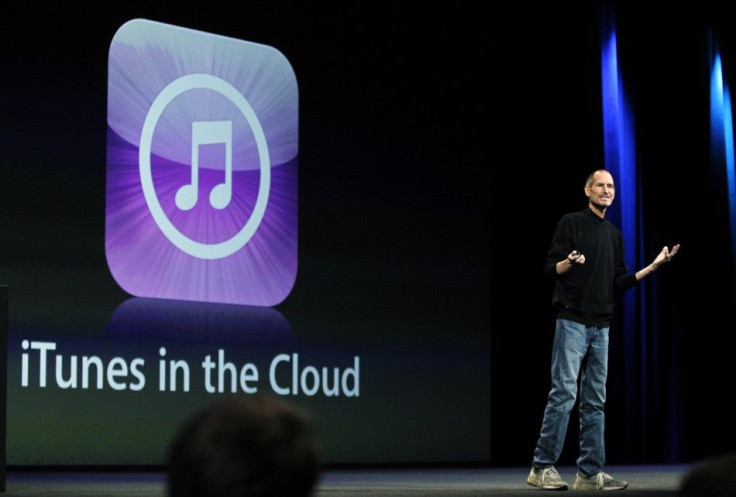iCloud Reinforces Apple's Leadership Position

Amid much fan-fare, technology giant Apple launched its much-anticipated iCloud service, released iOS 5 and unveiled Lion, the eighth major release of Mac OS X, which is the technology giant's desktop and server operating system for Macintosh computers.
All the three, which was announced at Apple's annual worldwide developers conference (WWDC), are expected for this coming fall alongside iPhone 5.
These announcements reinforce our view of Apple and Android as the leading smart phone and tablet operating systems.All three, along with the iPhone5 (in our view) are expected for this coming fall, ThinkEquity analyst Mark McKechnie wrote in a note to clients.
Most important, Apple finally pulls the wraps off its massive new $500 million North Carolina data-center to launch iCloud, enabling iOS devices to seamlessly integrate cloud-based sync, apps and streaming services.
This will combine the power of Apple's thin-client devices with its closed-loop customer ownership (discovery/delivery/billing).
In addition, iOS 5 plus iCloud will enable users to automatically and wirelessly keep all mail contacts, calendars, photos, apps, books, music, etc. up-to-date across all devices without ever needing to sync via a PC.
Sunshine On A Cloudy Day
Apple's iCloud announcement extends Apple's cloud services from the three former MobileMe applications of e-mail, Calendar, and Contacts, to six additional areas. These include cloud versions of the apps store, iBooks, Backup, Document sharing, PhotoStream, and iTunes.
Much more than just a simple back-up, sync or music streaming service, we consider iCloud a whole new, if not ultimate, leg to Apple's ability to grow and leverage its booming iOS thin-client strategy, Caris analyst Robert Cihra said in a note to his clients.
The concept is simple -- Apple now views Macs, iPhones, and iPads as devices with the digital hub moved to the sky.
In layman terms, users will be able to upload, access, and automatically share their digital content to and from the cloud with any of their Apple-based hardware products.
Free A Tough Price To Beat
The big surprise is Apple's pricing, which offers free cloud services for up to 5GB of personal data. Importantly, this 5GB quota does not include space for purchased music, apps, books, and PhotoStream, and will remain Ad Free for all users. Apple clearly is pricing the cloud offering to drive adoption, which longer term we believe will create loyalty and thus drive continued hardware sales.
Cutting The Cord With iOS 5
Apple characterized its iOS 5 update as a major new release, with shipment planned for the fall (presumably in line with the iPhone5). Notable new features include better notifications for new messages, Twitter integration, PC-free syncing to iTunes (cloud), improved camera features, and rich e-mail.
Apple added 200 new features to iOS 5 including new consolidated push Notifications, Newsstand UI and iMessage rich instant messaging platform.
Apple said it' now sold more than 200 million iOS devices to date (iPhone+iPad+iPod touch), up from 189 million in its March quarter.
Evolutionary Update For Mac OS X (Lion)
Mac OSX Lion update clearly showcases the power of the new iMac/iBook Sandy-Bridge-based hardware. Key updates include multi-touch gestures, full-screen apps, AutoSave/Resume features, and an enhanced Mac apps store.
Throwing Gas On The Mobile Broadband Fire
The analyst sees that networks -- WiFi and Wireless 3G/4G -- will see yet another uptick in data traffic as the installed base of Mac users begin accessing their files on the cloud.
McKechnie views the iCloud as yet another important driver in the Mobile Broadband space, which will lead to differentiation among carriers and equipment vendors who can effectively manage the traffic and offer better networks to their tablet and smart phone customers.
© Copyright IBTimes 2025. All rights reserved.




















